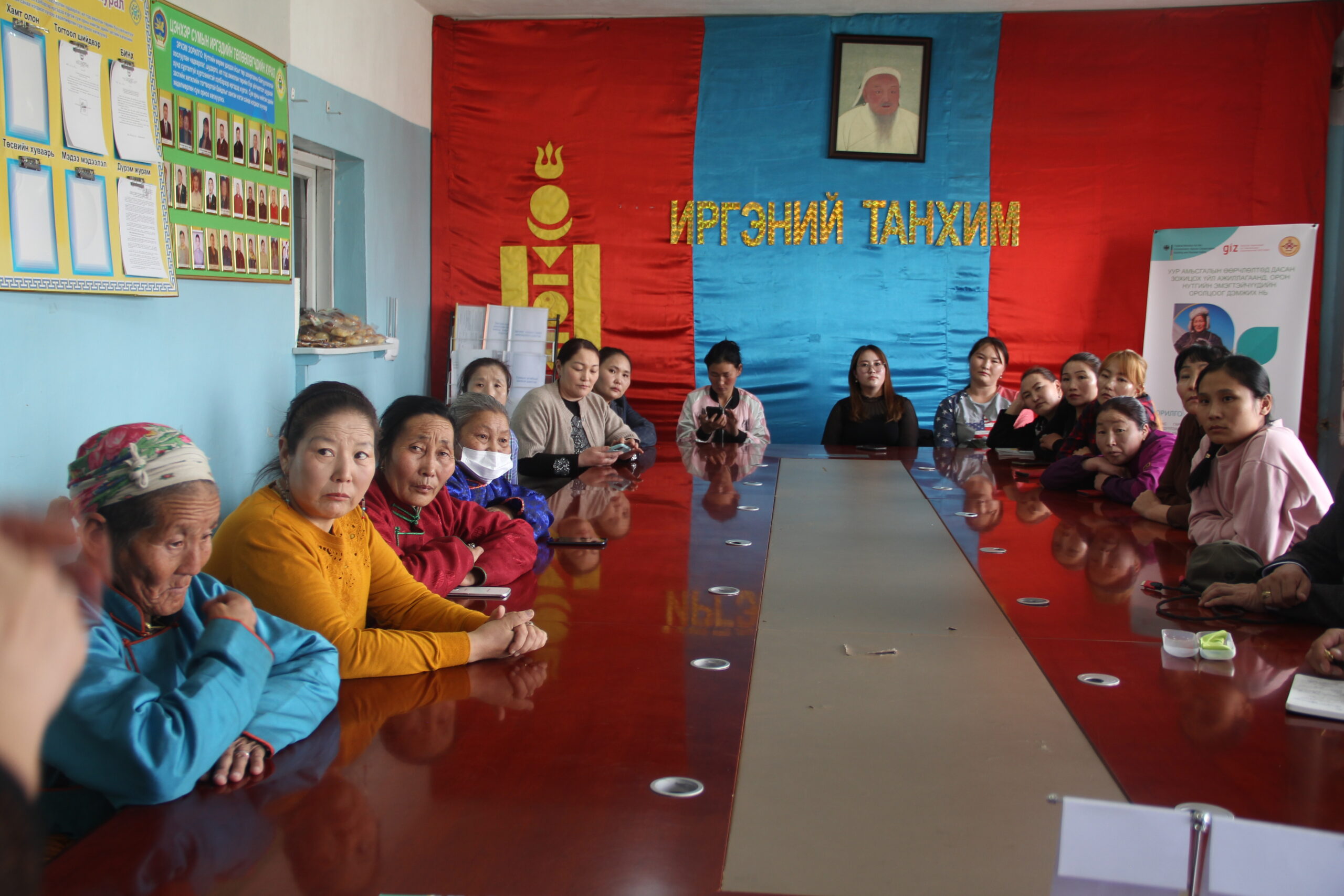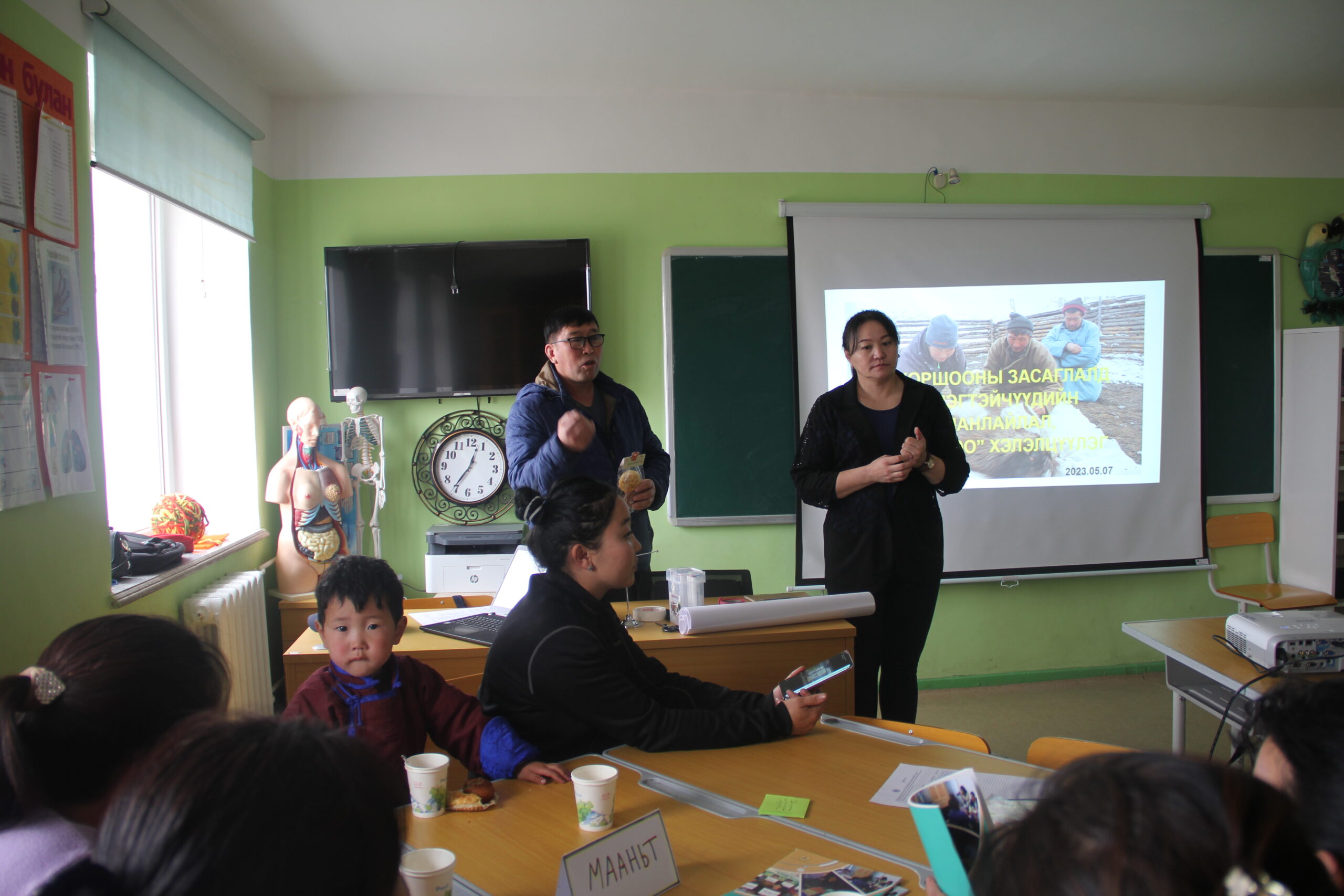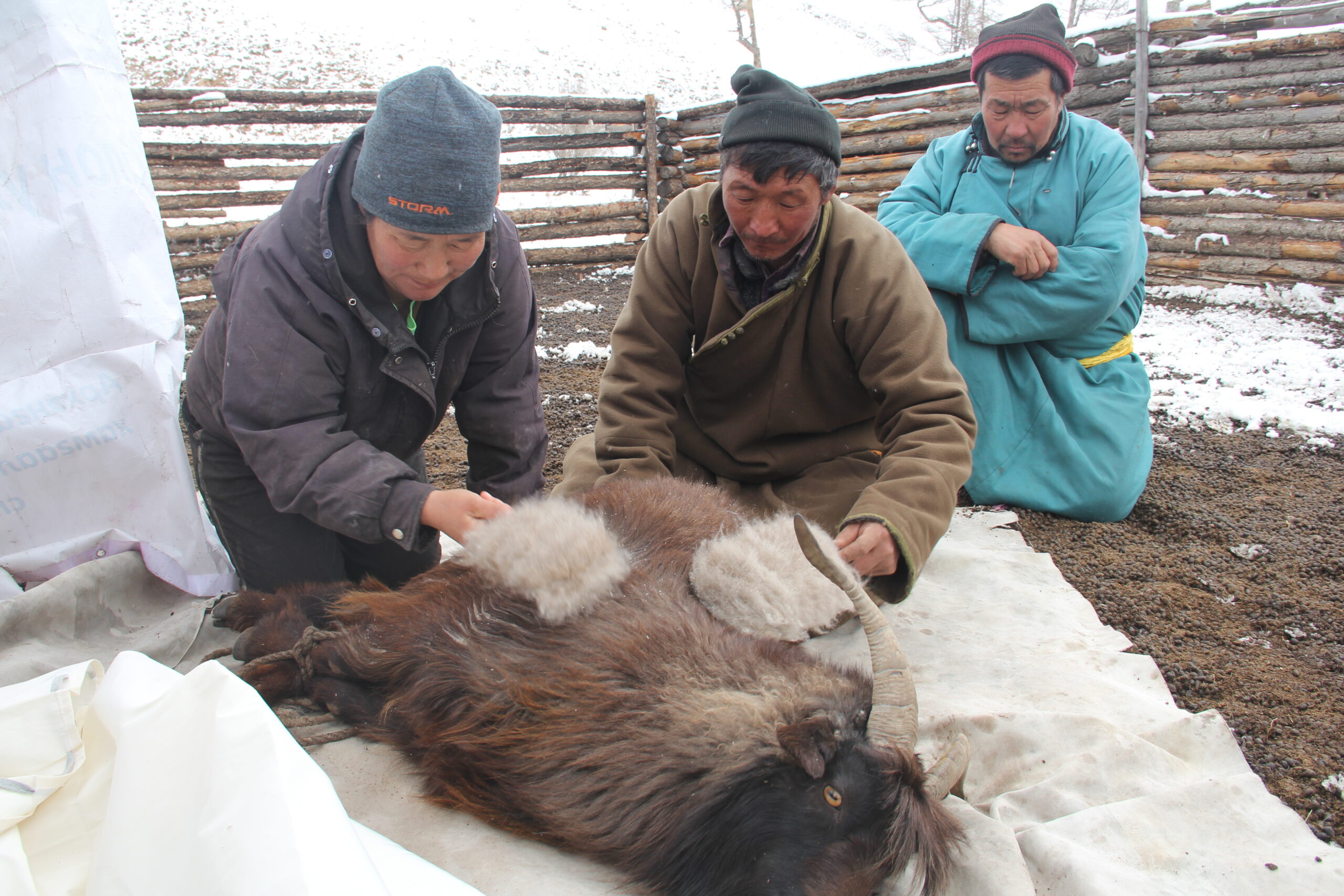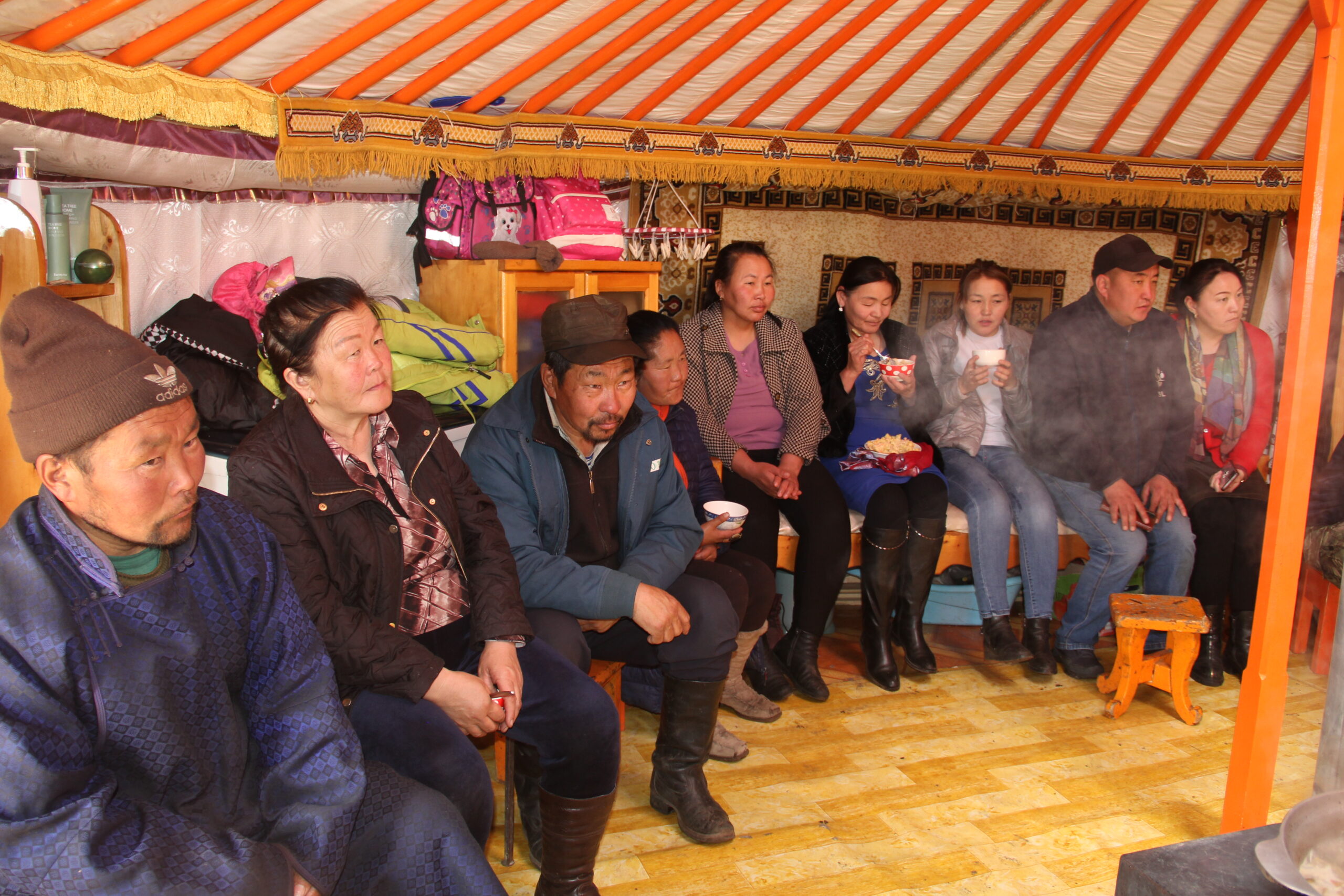Rural Women Leading Climate Actions
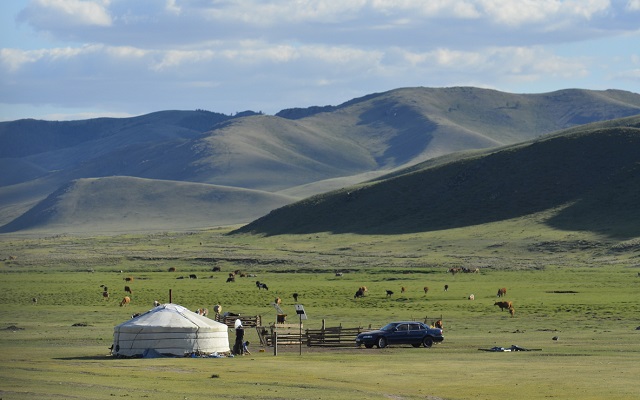
Climate change and increased livestock numbers contribute to vast land degradation in Mongolia. Still in transition towards a free market economy, herders from Khentii province have difficulties in adjusting their traditional pastoral system to the current changes and challenges in both income generating activities and climate change adaptation. Rural women have less opportunities to actively participate in community decision making processes.
This project aims to empower rural women to adapt to climate change through better livestock breeding techniques and financial independence. Further, the project informs policy makers and raises their awareness for the connection of gender and climate change related risks.
INITIAL SITUATION
There are many goats in the Bulgan and Tsenkher districts. Thereby, goats contribute most to soil degradation as they pull out the grass by the roots and thus prevent its regeneration. At the same time, the production of raw cashmere is an important source of income for pastoralist households. So far, information on the number of livestock, age structure of goats, cashmere production, quality, marketing channels, household income and power relations, is not known. Collecting this information through a baseline study forms therefore the beginning of the IKI Small Grants project.
TARGET GROUP
The IKI Small Grants project targets a minimum of 100 pastoralist households specialised in Kashmir production and at least 50 government officials.
APPROACH AND ACTIVITIES
Mongolian Women’s Fund (MONES) aims to strengthen community resilience to climate change through sustainable cashmere production.
Various activities aim to enable pastoralists to comply with the standards of the cashmere production value chain. These include capacity building trainings in pastoralist communities and selection of target households, cooperatives, and pastoralist groups. Conducting a baseline study in two target areas describes the situation and climatic impacts in two districts. A technical team provides training on sustainable cashmere production, and the target households and cooperatives are then audited and certified against the standards.
In addition, the organisation aims to disseminate management measures for sustainable livestock development and techniques that lead to reduced degradation. Two workshops on climate change are held in the target areas to raise awareness of the project and engage local stakeholders through open discussions. These will focus on rural pastoralists’ perceptions of climate change, climate variability and the factors influencing their decisions to adapt to the negative impacts of climate change, and on the role and leadership of women. Other activities include support for self-initiated mobilisation activities of women pastoralists for sustainable livestock management and training on gender and climate change. A women leaders’ networking event is used to bring together women pastoralists with external partners and allies to share knowledge and make their voices heard.
LATEST PROJECT HIGHLIGHTS AND IMPACTS
- Hands-on training on goat breeding and cashmere sorting
- Technical training on sustainable herding practices and finance
- Empowerment workshop for women cooperatives covering
-
- women’s leadership
- cooperative governance
-
CAPACITY DEVELOPMENT
IKI Small Grants supports MONES in their organisational capacity development through:
- Training module on “Gender and Climate Change”
- Training on project proposal writing

